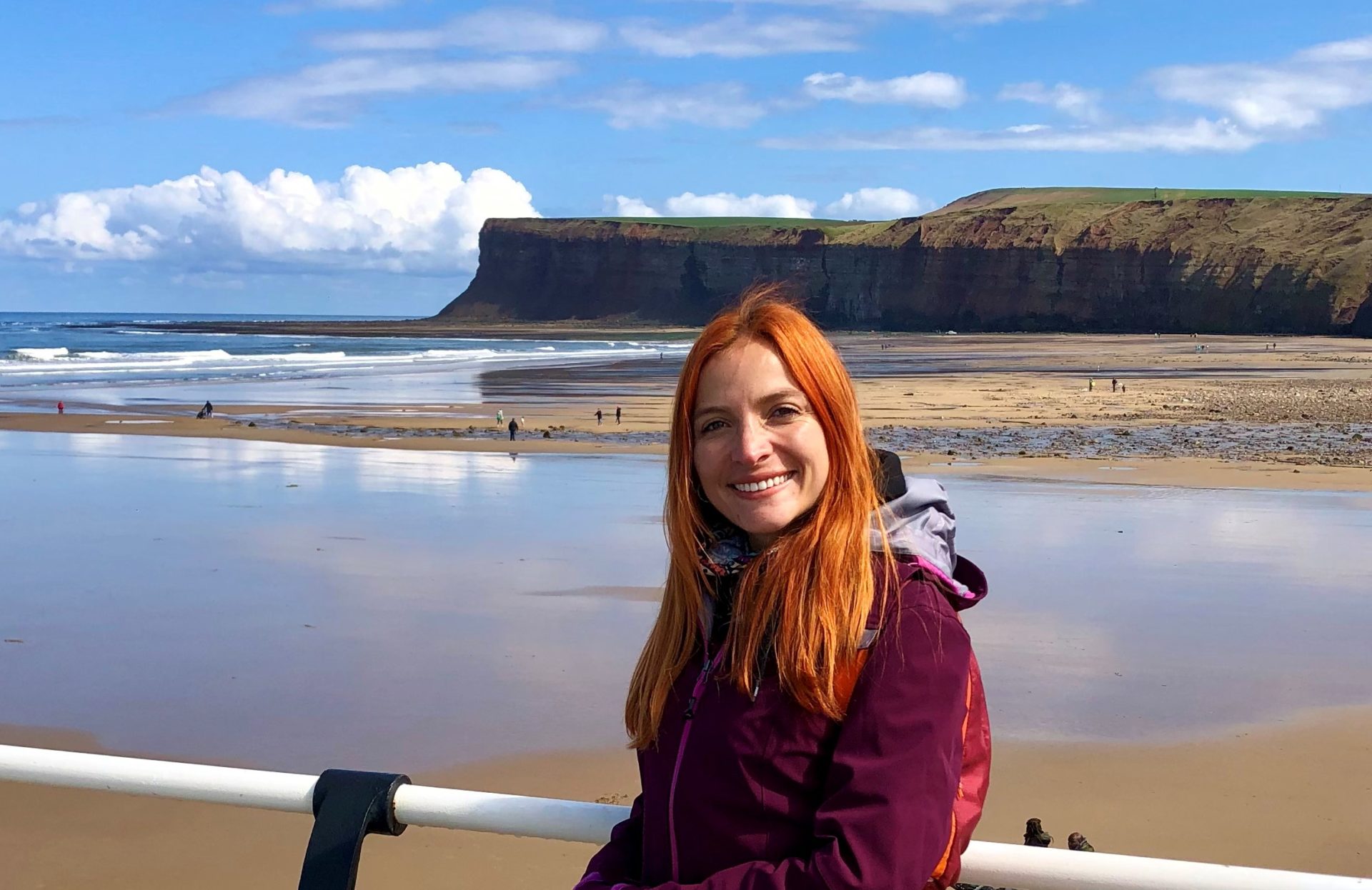Research Student Spotlight September-Tatiana Zúñiga-Burgos

Our monthly spotlight on the work and lives of the next generation of water@leeds researchers.
September 2021: Tatiana Zúñiga-Burgos
PhD title: Cell machinery manipulation for luxury phosphorus accumulation by Chlamydomonas reinhardtii from wastewater in temperate and tropical climates.
School of Civil Engineering and School of Cell and Molecular Biology, and member of the UKRI GCRF Water Security and Sustainable Development Hub Leeds team.
Supervisors: Dr. Miller Alonso Camargo-Valero and Prof. Alison Baker
Tell us a bit about yourself:
I am originally from Bogotá (Colombia), where I grew up and did my undergraduate and graduate studies in Environmental Engineering at Los Andes University. My degree projects were performed under the supervision of Dr. Johana Husserl to whom I owe my interest in research and fascination for microbiology and molecular biology and its application to environmental engineering challenges. I had a wonderful learning experience with my Masters dissertation “Production of bioplastics using an engineered E. coli, promoted by the presence of oleic acid in wastewaters”, which triggered my passion for resource recovery from waste.
Why did you choose University of Leeds?
This was, I think, a matter of luck and fate! I learned about the University of Leeds through my Masters supervisor when I was trying to find opportunities to keep pursuing my education goals. She encouraged me to apply to this project under the supervision of Dr. Miller Alonso Camargo-Valero. I was interested in this project because it focuses on resource recovery from wastewater, and I felt I could happily spend the next 3-4 years working on it. I must admit I was nervous about such a big opportunity, although my mother’s unconditional support made me feel confident to pursue this PhD at the University of Leeds, UK.
What is your research about?
My research project aims to contribute to our current understanding of luxury phosphorus uptake by microalgae, and its potential for enhanced engineering design criteria for algal biomass growth and nutrient uptake from wastewaters. With the use of fundamental research tools like molecular biology techniques to study P transport and accumulation in microalgal cell using Chlamydomonas reinhardtii; this approach involves the manipulation of microalgae cell machinery under environmental conditions typical of tropical and temperate climate countries (e.g., UK and Colombia). Furthermore, this project aims to explore alternatives to close the broken phosphorus cycle by recycling the produced P-rich biomass from this process into agriculture as a biofertilizer. All this in collaboration with the UKRI GCRF Water Security and Sustainable Development Hub.
What did you wish you knew before starting a PhD?
Science is dynamic and changing. Follow the leads that your research is telling you, rather than blindly sticking to a research plan.
![]() Follow Tatiana on twitter
Follow Tatiana on twitter
